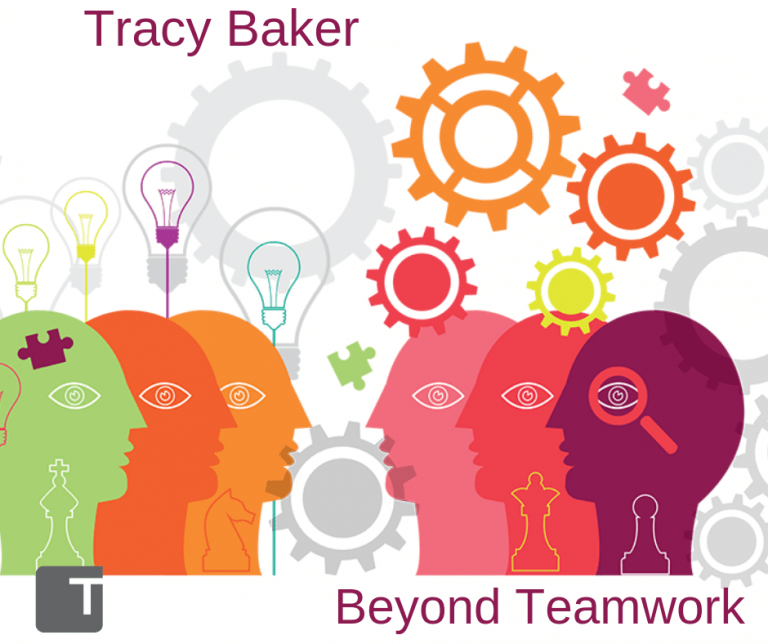Teamwork has the potential to transform a dental practice into a multimillion dollar entity or simply add some calm to the workday. It can drive production, improve patient care, attract new patients, and keep existing ones in the fold. Teamwork can be harnessed to grow revenue and shrink stressors.
Touting the benefits of teamwork has become second nature to anyone who has applied for a job in the past twenty years, acknowledged a coworker, or won a basketball game. Like most buzzwords, “teamwork” has become overused to the point of cliché and lost much of its power. And, often, teamwork alone is not enough.
The Folklore of Teamwork
There is a lot of folklore floating around about teamwork. It is not uncommon for dentists to have worked long and hard to put together a highly competent team of superstars only to find that confusion, delays, errors, and drop in morale rear their ugly heads within months. Inevitably this breakdown gets blamed on personalities; someone is not a “team player” or is “not the right fit” for the office. There is a tendency for lack of teamwork to be attributed to forces beyond our control.
“If our office could just find a good (insert job title here), we’d be able to solve (insert problems here).”
It’s also common for doctors to be convinced the breakdown of team performance (and the ensuing chaos, preventable errors, and wasted time) can be solved if they just invest more time, money, or patience on the team member(s). When this fails to bring about the desired improvements, there is turnover. Weary dentists turn their hopes over, once again, to an internet Job Post in search of the missing piece to their teamwork puzzle. Hope is not a very effective strategy.
It’s One Things to Create a TEAM, It’s Another Thing to Create TEAMWORK
By definition, teamwork is “cooperative effort on the part of a group with a common cause.” It conjures visions of a serene Utopian workplace. However, even if the team has a common cause and works together, it may not equate to the positive results and profits that dentists need to grow their practice and keep their sanity. Researchers have conducted studies on work teams to determine the characteristics that predict success. We’ve all heard them: good communication, conflict resolution, goal orientation, positive attitude, self-starters, and so on.
Interestingly, these same researchers concluded that having the characteristics that predict team success did not yield better business performance or positive financial outcomes. Isn’t the whole point of teamwork to get positive results?
Teamwork can outperform the best individual team member. Like the Gestalt principle, the whole really can be better than the sum of its parts. Unfortunately, even the best teams fail often and frequently miss their common goals because, like the proverbial house built on sand, the foundation is unstable, and they collapse. The basics of team effectiveness were identified by J. Richard Hackman, a pioneer in the field of organizational behavior who began studying teams in the 1970s. In more than 40 years of research, he uncovered a groundbreaking insight: What matters most to teamwork is not the personalities, attitudes, or behavioral styles of team members. Instead, what teams need to produce positive results are certain “enabling conditions.”
Building a Foundation to Power Teamwork
In our own work in Dental Practice Business Development, we’ve found that three of Hackman’s conditions—a strong foundation, compelling direction, and a supportive context—continue to be particularly critical to dental practice business growth and increasing revenue.
In fact, today’s competitive and densely-saturated dental market demands that much more attention be given to these three requirements if any progress toward improved quality of care and increased profitability is to be made.
The dental practice business model itself can and should be designed as an “enabling condition”. The foundation, strong or not, of any dental practice is constructed (whether the owner knows it or not) with Work Systems: The What, How, When, Who, Where, and Why We Do the Various Stuff That We Do Around Here, as Executed.
Whether or not a practice owner has given it any thought, the dental team will be involved in the execution of approximately 25 major Work Systems during the course of one dental office business day. A lot can and does go wrong when dental teams navigate their way blindly through these Work Systems, while Yelp-reviewing patients make mental notes.
Work Systems – The Foundation of Teamwork AND Success
Work Systems can be deliberately engineered to compel direction of the team towards financial or patient care objectives. A well-developed, robust Work System will orient, calibrate, organize, and point team members to the next indicated step in the Work Flow process. Further, they can be created within the context of being supportive in nature. Strong Work Systems are the Secret Sauce. They will drive or they will dash teamwork and the results that ensue. The quality of these Work Systems is directly related to the level of success that a dentist will or won’t achieve.
When well-defined Work Systems are thoughtfully developed and put into play, they create efficiency, organization, clarity, and time. They direct the team through the work flow, improve patient experience, keep things from falling through the cracks, hold the team accountable, make the dentist a better leader, and make the dental practice exceedingly profitable.
Developing strong, effective Work Systems is not a quick and easy process. There are no “one size fits all” sets of Work Systems; be wary of anyone who tells you there are. They are as unique as each practice owner. High quality Work Systems will save thousands, even millions of dollars in the revenue that is lost by dental teams that try to function on poor ones. Without Work Systems, teams simply will not have the capacity to produce positive business results. Work Systems are the power source of teamwork. When teamwork has the power to transform, it loses its buzzword status and ceases to be a cliché. We need no longer cringe. The lucrative and sanity-saving benefits of teamwork abound when placed upon a strong foundation.

